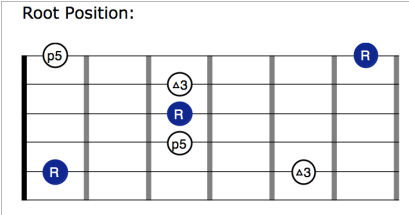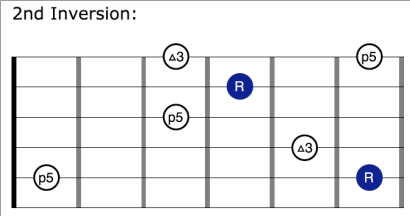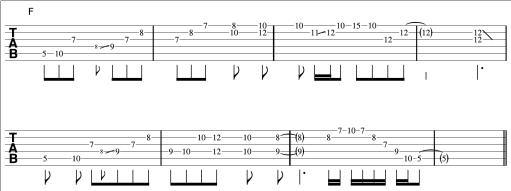Studying other styles of music such as jazz, will only make you a better, more rounded acoustic guitar player and musician.
To become a great guitar player, you really need to look outside of your "comfort style" so to speak. By this I mean, be open to other styles of music, such as jazz. But what if you don't like jazz, or even have any interest in playing the style?
Strange as it may seem to you, this does not matter. There are many things you will benefit from as an acoustic guitarist by looking at various aspects of jazz guitar playing.
To be clear, I am by no means saying you have to do a 180 degree turn from your way of playing, and become a jazz guitarist. I am simply saying to be open to the style of jazz so your acoustic guitar playing can benefit.
If you study the background of your favourite guitar players you will most definitely find their style of playing, in part, will have been influenced by other styles. Think Chet Atkins, Tommy Emmanuel, and John Mayor, for example. All these players have been influenced by the style of jazz and have certainly at least dabbled in it to grab ideas and concepts they can integrate into their own style.
"Pigeon holing" yourself as a player limits your creativity and scope of playing on the guitar, running the risk of sounding like a clone of somebody else, and/or become bored and stale with your own playing.
In today's article I am going to present to you 5 areas of your acoustic guitar playing that will improve big time by being open to and learning from the style of jazz.
Personally I love jazz! Both in playing it, and for what it has done for my guitar playing outside of the style itself. After playing guitar for 8 years, I stumbled across jazz and ended up studying it at college. In short, this was a massive game changer for my guitar playing and I am so grateful to this day that I went down this path.
Even though I studied jazz and have played it a lot, I don't consider myself to be a jazz guitarist and I'm certainly not saying that you need to go and study jazz at college. What I am saying is to be open to other styles of music. Continually be on the look out for what you can grab from here and there to add to your own playing/style.
Think of everything you hear and expose yourself to as one big musical smorgasbord/buffet of food. Sure you have your favourite stuff that you're going to have on your plate most of the time, but it's nice to add some other things to enhance the flavour, so to speak.
Below are 5 areas in which jazz will improve your acoustic guitar playing.
Chords:
Jazz guitarist's are known for their very large chord vocabularies, meaning the amount of chords they know and can use musically. Through studying jazz tunes you will drastically increase your own chord knowledge and vocabulary as you will need to in order to play the style.
The great thing is, these chords cross over to many styles of music and will be very useable to you outside of jazz. For examples of "jazzy" chords in non "jazzy" songs, check out John Mayor, Pink Floyd, or Tommy Emmanuel to name a few.
Check out these jazz chords for your acoustic guitar playing.
Arpeggios:
Of course arpeggios are used in all styles of music, none more than jazz. However, because of the nature of jazz and the fact that you are constantly switching between different key centres within the one tune, arpeggio's become necessary a lot of the time to negotiate these changes. You may have heard the term "playing through the changes". This is what I am referring to here.
It doesn't matter if you play a style of music that is very diatonic and stays in the one key for the most part. Arpeggios are a great way to target specific chord tones, bringing a much more melodic component to your playing.
List specific "non jazz" songs that use arpeggios (Dire Straits' "Sultans Of Swing", B section of Pink Floyd's "Time" solo).
There are also many ways you can apply arpeggios to your playing than what meets the eye, so to speak. See further down this article for an example.
Improvisation:
Yes, improvisation exists in other styles of music just as arpeggio's do, however with jazz it's at the forefront. Your improvisational skills will massively increase both in soloing and especially in jamming with other musicians when playing jazz.
Jazz musicians generally have very basic, generic charts for songs when jamming, and will totally improvise of the basic form of the tune. This is not only great fun to do, but there is so much to gain in developing your musical skills by doing so.
Walking Bass Lines:
Walking bass lines are very prominent in jazz, and it's not always the bass that will play these. Often you'll find a guitar in perhaps a duo or trio, where there is no bass player, adopting some walking bass lines to include in the tune.
Learning the part of another instrument gives you a totally different perspective on your playing, and in this case with a bass part, a lesson in playing through the harmony of a chord progression.
Walking bass lines can also be applied to really "jazz" up a blues progression, as well as providing you with insights that will contribute to acoustic instrumental arrangements you may create.
Learn how to arrange songs that other instruments play onto your acoustic guitar.
Chord/Melody:
Chord/Melody playing is huge in the jazz world!
Chord/melody is when you play both the chords and melody to a tune at the same time on the one instrument, in this case a guitar. Check out players such as Joe Pass, Martin Taylor, and Lenny Breau, for examples of this approach.
Studying and learning jazz chord/melody pieces will give you an insight into how to do this for your own arrangements, be it jazz or an acoustic instrumental of a song in another style.
Learn how to create your own solo acoustic instrumental arrangement of a song.
The most common way to use an arpeggio is to match the chord you are currently soloing over, for example a C arpeggio over a C chord. However there is another way of using arpeggios known as diatonic substitution.
Diatonic simply means that something is of the same key. With diatonic arpeggio substitution we are saying you can substitute one arpeggio within a key for another of the same key.
Check out these arpeggios for your acoustic guitar playing to learn much more about this really cool concept.
With just a couple of arpeggio patterns under your fingers, and a solid understanding of diatonic arpeggio substitution, you will gain access to many cool, unique, and sophisticated sounds for your guitar playing.
For now, let me demonstrate this concept with an example using the following two arpeggio patterns:


In this example I will be playing a G major arpeggio over an F chord. Both F and G come from the key of C, so we are sticking to our rule of diatonic arpeggio substitution here by substituting one arpeggio for another of the same key.
To introduce this sound, first listen to both G major arpeggios over the F chord:

Now listen to this etude that demonstrates some of the possibilities of this particular substitution:

The resulting sound has a lydian flavour about it. We are also gaining access to some common extensions of the F chord.
Let me lay out what is going on here, below:

The B note we get by playing the G major arpeggio over the F chord is what gives us the lydian flavour. The G and D notes are upper extensions of the F chord, the 9th and 6th/13th respectively.
If you are confused by any of this, don't worry. You can still gain access to all these cool sounds without having to first understand what is going on.
Discover how to get many cool and unique sounds with just a couple of arpeggio shapes on your acoustic guitar.
Specializing in online acoustic guitar lessons, Simon Candy is based in Melbourne, Australia where he runs his own guitar school.